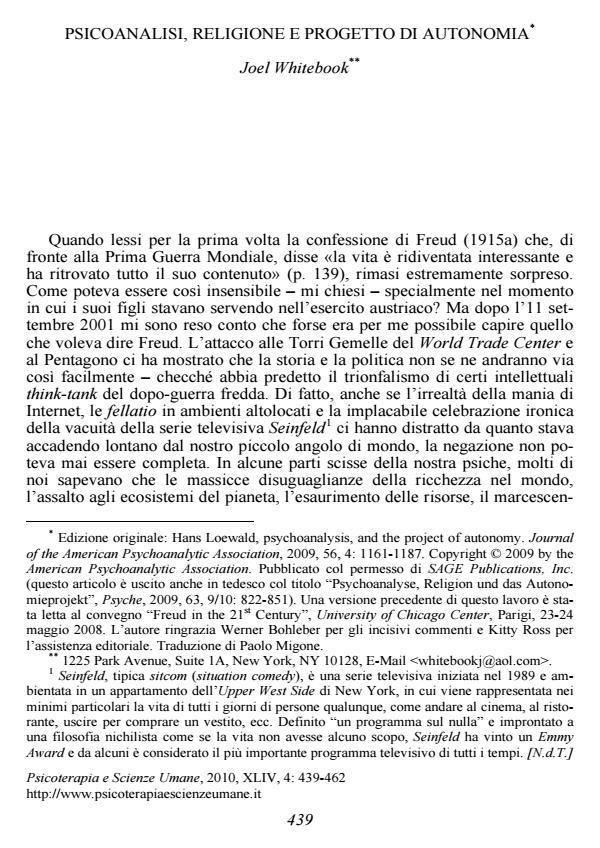Psychoanalysis, religion, and the project of autonomy
Journal title PSICOTERAPIA E SCIENZE UMANE
Author/s Joel Whitebook
Publishing Year 2010 Issue 2010/4
Language Italian Pages 22 P. 439-460 File size 180 KB
DOI 10.3280/PU2010-004001
DOI is like a bar code for intellectual property: to have more infomation
click here
Below, you can see the article first page
If you want to buy this article in PDF format, you can do it, following the instructions to buy download credits

FrancoAngeli is member of Publishers International Linking Association, Inc (PILA), a not-for-profit association which run the CrossRef service enabling links to and from online scholarly content.
Freud’s cultural writings - concerning modernity, secularism, science, and religion - are often seen as unscientific speculations. But the questions explored in those works deserve serious attention. Just as fascism provided the historical context in which the critical theorists of the Frankfurt School developed a psychoanalytic social theory in the 1930s and 1940s, so the rise of fundamentalism demands a similar effort today. The "project of autonomy" conceptualized by Cornelius Castoriadis can be used to see psychoanalysis as part of the emancipatory movement of modernity, and to elucidate fundamentalism as an attempt to reinstate the values of premodern societies. Given Freud’s view of religion, it is time to formulate, using the work of Hans Loewald, a more sensitive psychoanalytic view of religion. Yet the legitimate desire to do justice to religion must not trump the need to advance the project of autonomy as a first priority.
Keywords: Religion, fundamentalism, project of autonomy, Cornelius Castoriadis, Hans Loewald
Joel Whitebook, Psicoanalisi, religione e progetto di autonomia in "PSICOTERAPIA E SCIENZE UMANE" 4/2010, pp 439-460, DOI: 10.3280/PU2010-004001